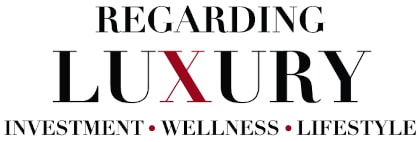If you’re looking to become wealthy by working your 9-to-5 job, good luck. While it is certainly possible, it’s going to take a while. If you’d like to live a comfortable life, a 9-to-5 job can provide that. However, if you’re looking to become affluent while you’re still young enough to enjoy it, starting your own business can help accelerate your path there.
You might think that you have to put your dreams of homeownership on hold if you’re a business owner. There’s a common misconception out there that self-employed individuals can’t get mortgages. This isn’t true. In fact, jumbo mortgage wholesale lenders are great for those first-time buyers who have earned a lot of money as business owners.
Related Posts
- Looking To Get Creative With Mortgage Financing To Buy a Luxury Home? The Details Might Surprise You
- Building a New Digital Real Estate Empire
- Taking the Mexico Real Estate Plunge? Read This First
- Real Estate Investor: The Brrrr Method and Why It Might Be a Perfect Strategy for You
- Real Estate Investor: How Do I Use Rental Income To Help Buy an Investment Property?
That’s simply not true. Business owners usually do need to provide more documentation than a salaried employee. But it’s still very much possible to get a mortgage if you’re self-employed.

Applying for a mortgage when you’re self-employed
In the eyes of the lender, providing a mortgage to someone who’s self-employed is riskier than someone who’s a salaried employee. Whether that’s fair or not is up for debate, but that shouldn’t deter you from investing in real estate and applying for a mortgage if you’re self-employed.
Lenders want to see a steady track record of your business. Typically, a lender wants at least two years of filed personal taxed returns before they’ll approve your mortgage application as a business owner.

Besides your Personal T1 Generals for the last two years, lenders will also want to see your notice of assessments for the last two years and your most recent two year corporate financial statements (if applicable). Other documents lenders might ask for include articles of incorporation, valid business license and last two years of HST/GST returns.
Related: Pandemic-world reality: Interior design tips for the post-divorce male
If your business has a steady track record and hasn’t been impacted by COVID-19, you should have no problem getting a mortgage just like a salaried employee.
What if you’ve been in business for less than two years?
Let’s say your business has only been in operation for a year. Prior to then you were a salaried employee in the same industry. In that case, many lenders may be willing to approve your mortgage application because you have a history in the industry.

If you don’t qualify for “A” lending, alternative lenders may be willing to consider your application. With alternative lending rates starting at 2.99%, there’s never been a better time to take out mortgage financing.
Writing off a lot of expenses
A common issue business owners run into when applying for a mortgage is that they aren’t showing a lot of taxable income on paper. Sure, this can save you on taxes, but it can make it more challenging to get a mortgage.
In recognition of the fact that business owners write off expenses, most mortgage lenders let you gross up (increase) your gross business/professional income by 15%.
There’s a common misconception out there that self-employed individuals can’t get mortgages.
If that’s not enough to qualify, you might look at getting a mortgage through an alternative lender. Alternative lenders have more flexible qualification criteria and can value your income in more flexible ways, such as projecting your income using bank statements.
Buying a rental property
If you’re buying a rental property, don’t forget that you can include rental income on your mortgage application to help offset the mortgage liability of another property. I wrote about the various ways lenders look at your rental income in depth in this article. Be sure to check it out.
The bottom line

Sean Cooper is the bestselling author of the book, Burn Your Mortgage: The Simple, Powerful Path to Financial Freedom for Canadians. He bought his first house when he was only 27 in Toronto and paid off his mortgage in just 3 years by age 30. An in-demand Personal Finance Journalist, Money Coach and Speaker, his articles and blogs have been featured in publications such as the Toronto Star, Globe and Mail, Financial Post and MoneySense. Connect with Sean on LinkedIn, Twitter, Facebook and Instagram.








